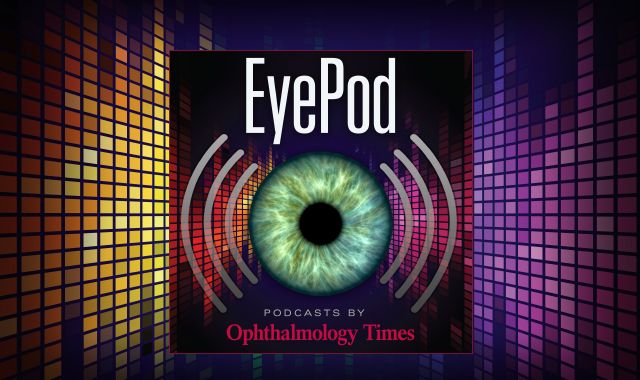News
Article
Immunosuppressants used to control ocular inflammation not involved in cancer development
Author(s):
The investigators performed a retrospective cohort study of patients from 10 US ocular inflammatory disease (OID) subspecialty practices.
(Image Credit: AdobeStok/Rabbit_1990)

Commonly used immunosuppressants used in the short term to control an ocular inflammatory disease were not associated with increased risk of developing cancer later,1 according to the first study author Jeanine Buchanich, MEd, MPH, PhD, from the Department of Biostatistics, University of Pittsburgh School of Public Health, Pittsburgh. The authors published their results in BMJ Oncology.1
“When we got these results,” she said, “I was reassured, and I hope patients will be, too. Immunosuppressants are widely used and transformative for care of patients with inflammatory diseases, but the potential concern that they carry a cancer risk has forced people to make difficult decisions without enough information. Alleviating that concern with use for inflammatory diseases will help people make the treatment decision that’s right for them.”
This new research was done in collaboration with researchers from led by John H. Kempen, MD, PhD, senior scientist and director of epidemiology for ophthalmology at Mass Eye and Ear and professor of ophthalmology at Harvard Medical School, Boston. The findings added evidence to the limited cancer risk associated with immunosuppressant treatments uncovered by the SITE study consortium. In a study published last month in Ophthalmology,2 the researchers found no increased risk in cancer-related and overall mortality in individuals taking commonly used immunosuppressants. The study included 15,938 SITE participants who were tracked for an average of 10 years.
The investigators performed a retrospective cohort study of patients from 10 US ocular inflammatory disease (OID) subspecialty practices. Patients with a non-infectious ocular inflammatory disease were included; Patients with HIV were not included.
They conducted this study because of the conflicting evidence gathered from previous studies regarding whether the short-term use of immunosuppressive drugs is associated with subsequent cancer development. The investigators explained that most previous studies had indications-for-treatment bias because the participants being at risk for cancer because of the disease serving as the indication for the immunosuppression therapy.
Buchanich explained that the time-dependent exposure to drug classes (ie, antimetabolites, calcineurin inhibitors, alkylating agents, tumor necrosis factor [TNF] inhibitors) and drugs were evaluated. The cancer incidence was ascertained by linkage to 12 state cancer registries from 1996 to 2015. The cancer incidence was analyzed using 0-year, 3-year and 5-year lags after the immunosuppression therapy began.
A total of 10,872 patients were included in the cancer incidence cohort who were at risk of incident cancer and who lived in 1 of the states covered.
The researchers identified 812 primary cancers through cancer incidence tracing with a median follow-up time of 10 years. TNF inhibitors, antimetabolites, calcineurin inhibitors and alkylating agent classes were not associated with statistically significant increases in cancer incidence adjusting for covariates.
The researchers reported significantly reduced hazards in the systemic inflammatory disease (SID)-including cohort for adalimumab and chlorambucil, increased hazards for tacrolimus and etanercept in the non-SID cohort and reduced hazards for methotrexate in both. Other immunosuppressive drugs were not associated with the overall cancer incidence.
The authors concluded that there was no increased risk of overall or site-specific cancer incidence associated with short-term (non-transplant) therapy with most commonly used immunosuppressive drug classes and many specific drugs. They advised that further research may clarify potentially protective or harmful effects of specific agents that were not consistently associated with reduced or increased cancer incidence.
Reference:
Buchanich JM, Newcomb CW, Washington TL, et al. for the Systemic Immunosuppressive Therapy for Eye Diseases (SITE) Cohort Study Research Group. Use of immunosuppression and subsequent cancer incidence: cohort study. BMJ Oncol. 2023; Published: July 25, 2023; DOI:https://doi.org/10.1016/j.ophtha.2023.07.023
Kempen JH, Newcomb CW, Washington TL, et al. for the Systemic Immunosuppressive Therapy for Eye Diseases (SITE) Cohort Study Research Group. Use of immunosuppression and the risk of subsequent overall or cancer mortality. Ophthalmology. Published: July 25, 2023; DOI:https://doi.org/10.1016/j.ophtha.2023.07.023
Newsletter
Don’t miss out—get Ophthalmology Times updates on the latest clinical advancements and expert interviews, straight to your inbox.





